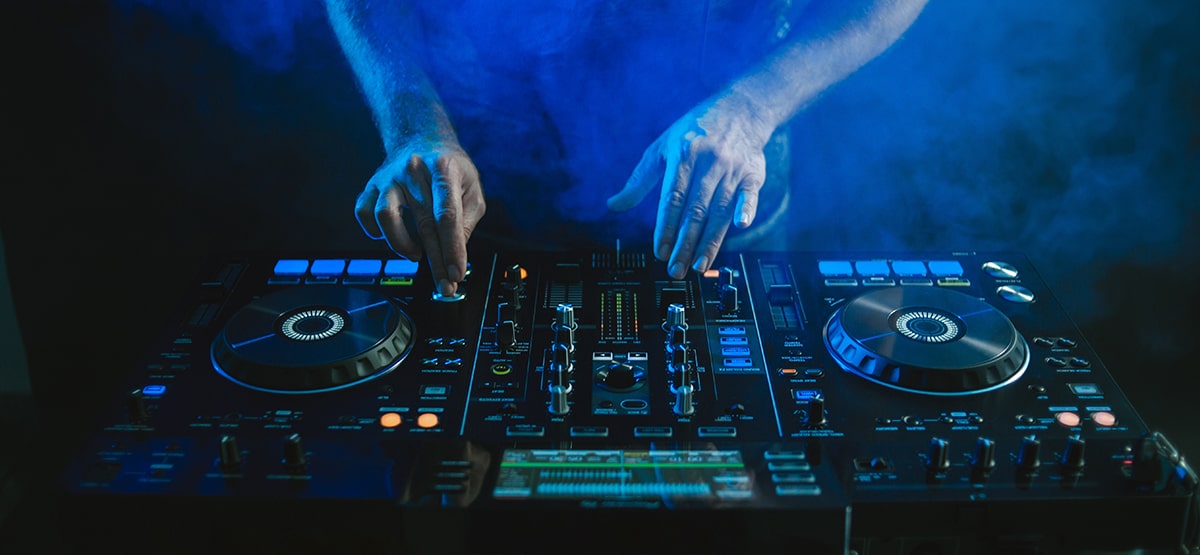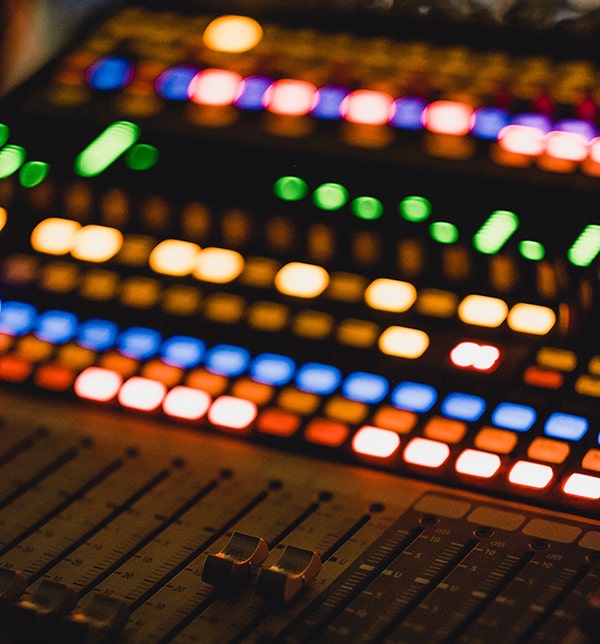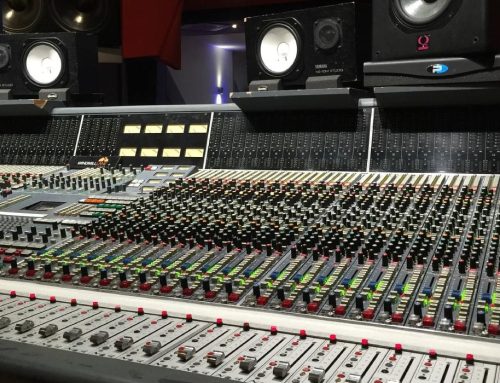
Mixing is one of the main steps in music production that creates harmony and balance in a song, regardless of its genre. However, mixing each music type can be different. As D Man Productions is specialized in hip-hop music (besides other genres), we are going to discuss some must-know tips for mixing hip-hop and rap and share our experiences with you.
You will also get to know more about mastering hip hop and rap songs, and the tools and equipment you need for their production, mixing, and mastering.
How to Mix Hip-Hop and Rap
Hip hop music is rhythmic and it usually goes with rap lyrics which are complex, rhythmic, and rhyming. Other than the rhyme, assonance and alliteration techniques are also commonly used in these lyrics.
Coming up with an idea for a hip hop song and producing it is one matter, and mixing it in the right way is another. If you have the experience, you already know that the mixing step in hip hop production can be the most difficult step of the process.
Read on to learn some of the main techniques for mixing this type of music. If you need to learn more about music mixing, check out this page.
Essential Tips for Mixing Hip-Hop and Rap Songs
Although what follows is indispensable, it is still far from a comprehensive guide, because there are no boundaries in mixing knowledge and skills. If you are looking for a professional mix, it would be better to leave it to professional hip hop engineers. Contact us at 816-313-2788 for a free consultation.
Let’s go over 9 fundamental and necessary tips and techniques for mixing hip-hop and rap songs.
1. Good Arrangement
How various instruments and sounds are arranged is called the arrangement. You can decide which part of the frequency spectrum is missing some elements and which part is too busy. A spectrum analyzer will come in handy for this purpose. You should also be open to muting the sounds or instruments that are not adding value to the song.
For example, the bass is an important element in hip-hop songs and you need to leave enough space for that in your arrangement.
2. Gain Staging and the Optimal Level
Gain staging is preparing your audio track as the input for further processes. It is crucial to set it to an optimal level to avoid distortions and noise. For example, you should not make the input level too loud. If so, during the mastering step, which comes after mixing (read more about it here), there will not be any headroom to amplify the volume.
Therefore, keep in mind that an ideal overall loudness at the end of mixing should be around -6dB for a hip-hop song.
3. Use Automation Creatively
Automating means changes in the volume, panning, and some other elements of the song over time. This adds some movement to your mix and makes the song more dynamic. Your DAW offers automating options. You can use the same elements but with some adjustments to make the song more capturing.
For instance, hip hop or rap songs with a repetitive beat can get more exciting and attractive by using automation.
These first three tips are the preliminary steps in preparing your hip hop or rap song for a good mix. The remaining tips are related to the main part of mixing.
4. Take Care of the Vocals
If your hip hop song includes any vocal tracks, make sure that no other element clashes with them. The vocals are the most significant part of a hip hop song and they should be clear for the best impact. Usually, these vocals are in the range of 2 to 7 kHz. This information will make it easier for you to keep them upfront.
Another factor you need to keep in mind when it comes to vocals is their dynamic nature. Vocals can be too dynamic. In order to match them with other elements, using a compressor is recommended.
5. Mixing Hip Hop and Rap Beats
The beats should be strong and hit hard in a hip hop or rap song. Normally, the bass and the kick drum are the lowest instruments in this genre. Choosing one of these elements for the range of 30 to 60 Hz would make it more impactful. If you have both of these instruments, it is recommended to have the sub bass on top of the kicks for a better and stronger result.
You can make good use of 808s and hi-hats to create more creative and interesting drum patterns. Another recommendation is using parallel compression (aka. New York compression) on your drums to make them more powerful.
Generally, to have a great beat in a rap or a hip hop song, you should mix the vocal, the drum, and the bass so well to reach good cohesion.
Basic Tips for Mixing Hip-Hop and Rap Beats

Mixing beats is a delicate stage of mixing hip-hop and rap songs. That is why you have to do it perfectly. Follow the advice below for a better result.
- Before anything, make sure of the good sound quality of the instruments, drums, vocals, etc.
- Your tools and equipment must be able to give you a genuine representation of the soundtrack and its beat. Otherwise, you cannot understand what needs to be done. Especially, you need good studio audio monitors.
- In order to get more perspectives, it is strongly suggested to use different speakers and stereo systems. You will know how the beat sounds and will fix the problems before moving on to mastering.
- If you are using a ready-made beat, make sure it is legally free. And, if you have purchased a non-exclusive beat, you are usually required to mention its producer. Generally speaking, you have to be careful about respecting the copyright to avoid later troubles.
- To have a more unique and catchier beat, you should order a custom beat. This will help your song stand out.
Plenty of beats with different licenses (exclusive, non-exclusive, and custom beats) are available at D Man Productions. Learn more about their differences and how to purchase them here.
6. Bass Split
One of the common techniques to create a stronger bass, which is vital for rap and hip hop songs, is splitting the bass. One of them is the original one (anything above 90 Hz). And the other one that goes lower than 90 Hz should be just a sine wave.
7. Parallel Saturation
Although making the song ready for playback on any kind of platform and device is done during mastering, there are things you can do to make the job easier during mixing. As mentioned above, the bass is a major part of a rap or a hip hop song. Some commonly used devices, such as mobile phones, are not equipped to reproduce such low frequencies. This is where parallel saturation proves itself useful.
Saturation makes hooking harmonic distortions in upper frequencies. And, using parallel saturation on the bass instruments not only makes the bass audible in small devices but also prevents you from making a harsh mix.
8. Using Effects to Create Variety
Effects are also very popular in hip hop and rap. You can add some common effects like delay, reverb, stutter, etc. to create the ambiance you are looking for. Just make sure you are overdoing it. You can always refer to famous hits in the genre to get an understanding of how much is enough.
9. Always Have an Overall Assessment
When you are done, go over it a few times. You can even ask an experienced engineer to listen to it. Make sure your hip hop or rap mix has at least the following features:
- A strong driving beat
- Upfront vocals
- Powerful low frequencies
Mastering Hip-Hop and Rap songs
As mentioned above, mastering is the final step in a music production process that makes the song ready for playback on any device and platform. In other words, it makes the soundtrack ready for release. Even though the aim of mastering in all types of music is the same, as hip hop and rap have unique elements, you need to keep in mind some genre-specific tips.
- You should have great knowledge about hip-hop and rap and their consumers’ expectations.
- You should make the low-end and high-end frequencies stronger while avoiding unwanted distortions.
- You should keep the loudness in the average range. For hip hop and rap songs that are played in clubs or on CDs, -9 LUFS to -6 LUFS seems like a good range.
- If you are not a professional mastering engineer, and you are doing it yourself, we recommend you play your soundtrack on different devices to figure out what else you need to work on more.
But if you are looking for an accomplished engineer to do the mastering at a reasonable price, we are here for you. Contact us at 816-313-2788 for some advice or to get a quote.
Essential Tools for Hip-Hop and Rap Songs
In order to produce, mix, and master hip hop and rap songs, or to make beats for them, there are certain tools and equipment that you must have. Of course, most of them are needed to produce other music types as well.
- Computer
- Studio speaker monitors (the speakers of your computer may not have the quality you are looking for.)
- Quality headphones
- Quality microphones and preamplifier (if you do vocals as well as instrumentals)
- Digital Audio Workstation (DAW)
- Compressors
- Plugins for mixing and mastering
- Equalizer
- Beat making (hardware and/or software)
- Mastering hardware
- Audio interface/converters
- MIDI controller keyboard
If you find other tools useful or even necessary to record, produce, mix, and master hip hop and rap songs, share your thoughts with us in the comment section.
Hip-Hop and Rap Services at D Man Productions
Our team at D Man Productions in Kansas City is specialized in hip hop (and R&B) and, as part of our services, we offer to do mastering and mixing hip-hop and rap songs. Actually, we are ready to help you with your hip hop and rap music from the first step to the last.
Our producers, beat makers, and mixing and mastering experts will lend you a hand if you need it. Visit our beat maker studio, mixing and mastering service, and other services to find out how we can be of help. You can hire us from wherever you are. We also promise you that the prices are budget-friendly.
Our work is not limited to these genres though. You can count on us for all your music-related services regardless of the genre.
Give us a call at 816-313-2788.

